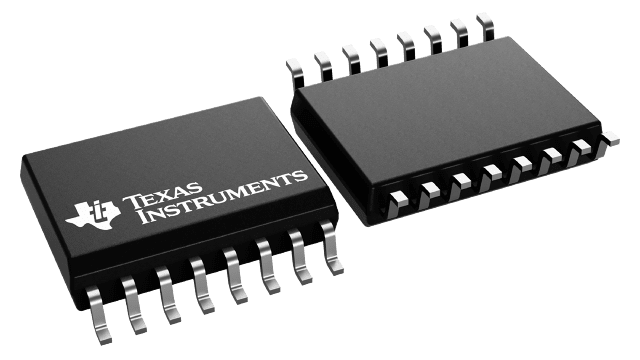Gehäuseinformationen
| Gehäuse | Pins SOIC (DW) | 16 |
| Betriebstemperaturbereich (°C) -40 to 125 |
| Gehäusemenge | Träger 2.000 | LARGE T&R |
Merkmale von UCC21710
- 5.7-kV RMS single channel isolated gate driver
- Drives SiC MOSFETs and IGBTs up to 2121V pk
- 33-V maximum output drive voltage (VDD-VEE)
- ±10-A drive strength and split output
- 150-V/ns minimum CMTI
- 4-A internal active Miller clamp
- 400-mA soft turn-off under fault condition
- Isolated analog sensor with PWM output for
- Temperature sensing with NTC, PTC or thermal diode
- High voltage DC-Link or phase voltage
- Alarm FLT on over current and reset from RST/EN
- Fast enable/disable response on RST/EN
- Rejects <40-ns noise transient and pulses on input pins
- 12-V VDD UVLO with power good on RDY
- Inputs/outputs with over/under-shoot transient voltage Immunity up to 5 V
- 130-ns (maximum) propagation delay and 30-ns (maximum) pulse/part skew
- SOIC-16 DW package with creepage and clearance distance > 8 mm
- Operating junction temperature –40°C to 150°C
- Safety-related
certifications:
- Reinforced insulation per DIN EN IEC 60747-17(VDE 0884-17)
- UL 1577 component recognition program
Beschreibung von UCC21710
The UCC21710 is a galvanically isolated single channel gate driver designed to drive up to 1700V SiC MOSFETs and IGBTs. It features advanced integrated protection, best-in-class dynamic performance, and robustness. UCC21710 has up to ±10-A peak source and sink current.
The input side is isolated from the output side with SiO 2 capacitive isolation technology, supporting up to 1.5-kV RMS working voltage with longer than 40 years isolation barrier life, 12.8-kV PK surge immunity, as well as providing low part-to-part skew , and >150V/ns common mode noise immunity (CMTI).
The UCC21710 includes the state-of-art protection features, such as fast overcurrent and short circuit detection, shunt current sensing support, fault reporting, active Miller clamp, and input and output side power supply UVLO to optimize SiC and IGBT switching behavior and robustness. The isolated analog to PWM sensor can be utilized for easier temperature or voltage sensing, further increasing the drivers’ versatility and simplifying the system design effort, size and cost.
